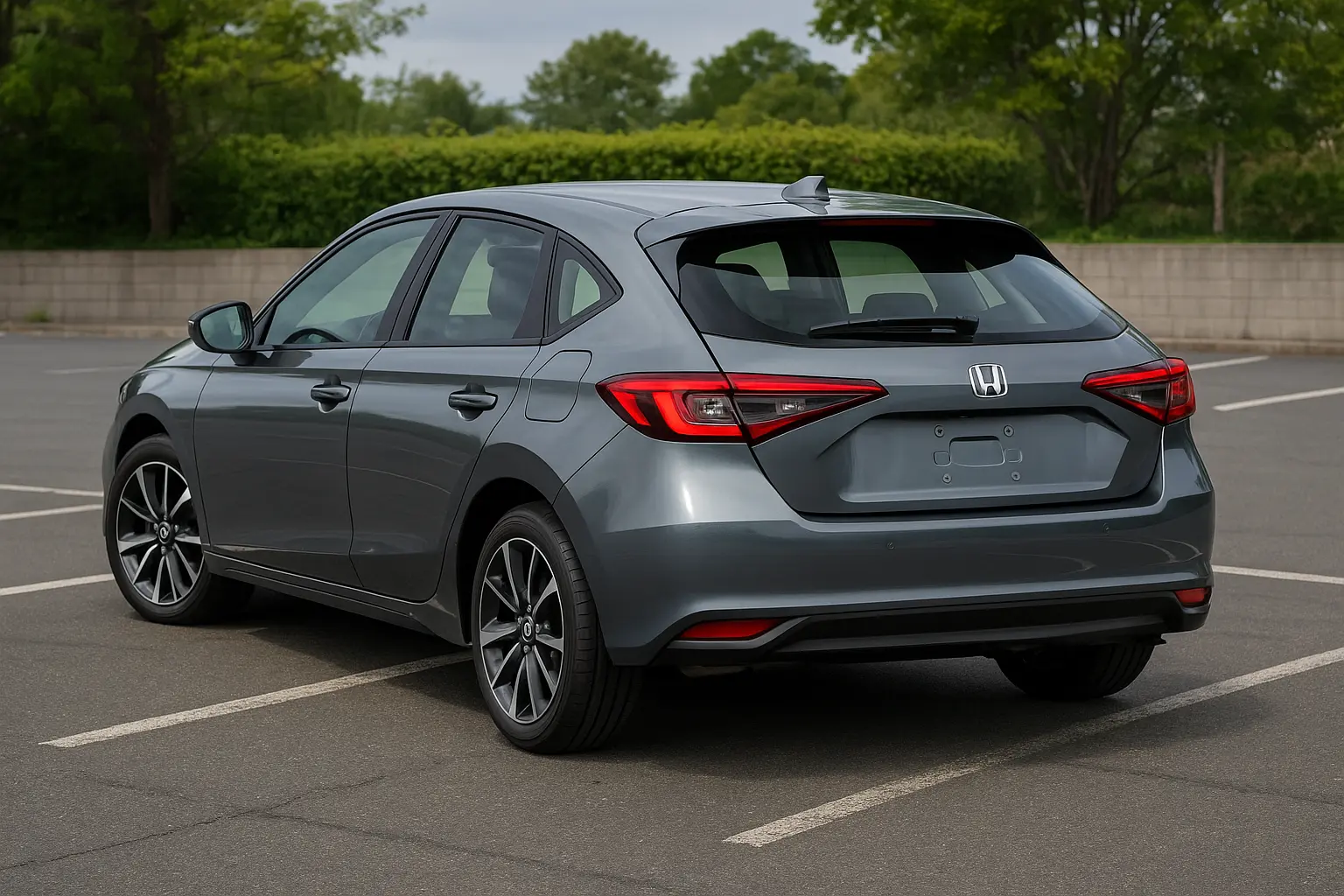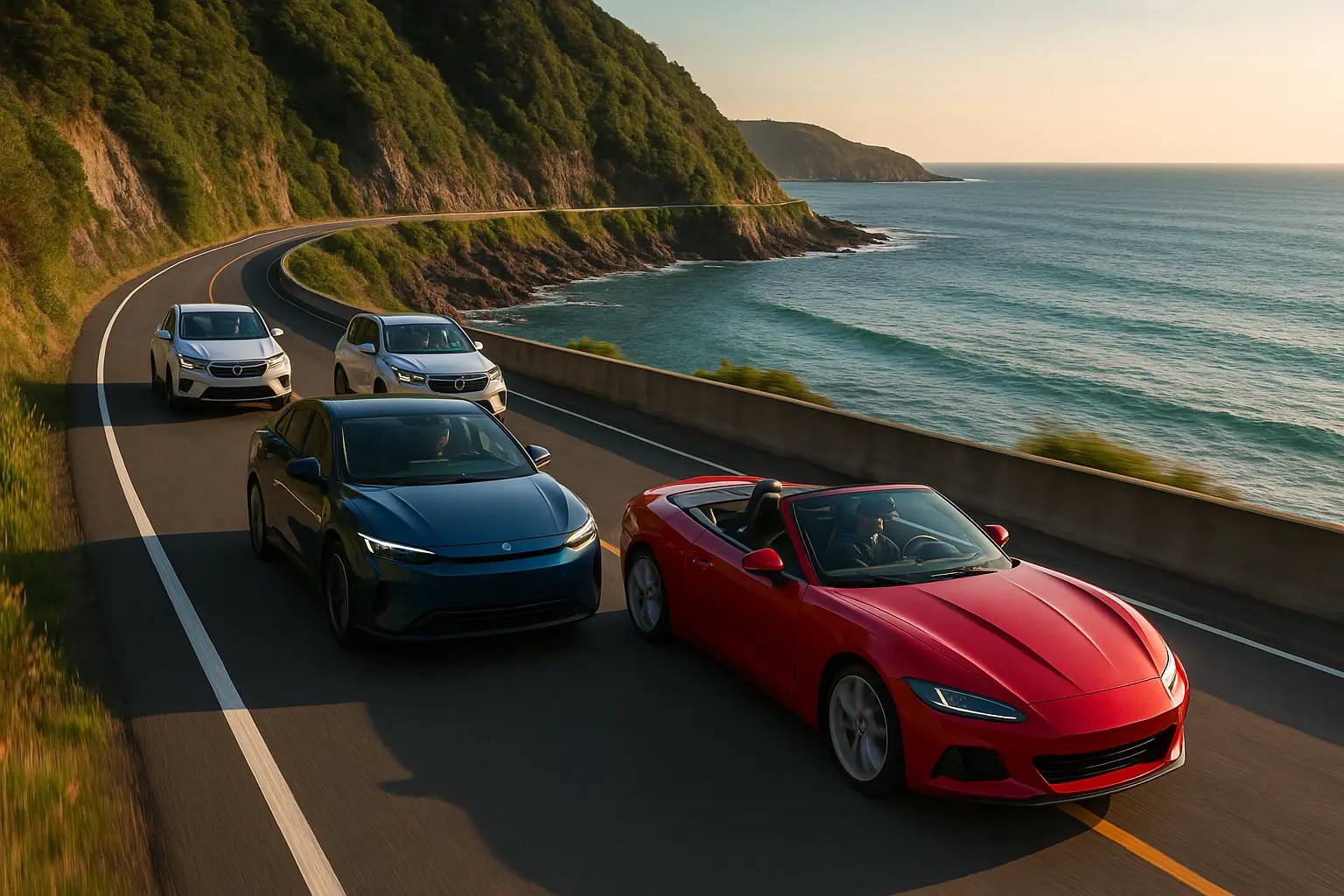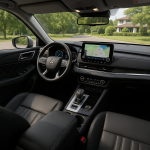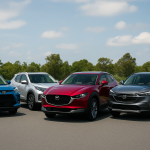The Most Spacious Hatchbacks in 2025 – Roomier Than You’d Think
When Aussies think of space in a car, hatchbacks may not be the first to spring to mind. However, the 2025 market has seen a new wave of smartly designed, impressively roomy hatchbacks that break the traditional perception of “small cars.” Whether it’s headroom, rear legroom, or boot space, today's hatchbacks pack a surprising punch.
In this detailed guide, we’ll compare Australia’s top spacious hatchbacks for 2025, focusing on usable interior dimensions, versatility, practicality, and comfort. From urban runabouts to long-distance cruisers, these hatchbacks are proving you can have both compact agility and interior flexibility.
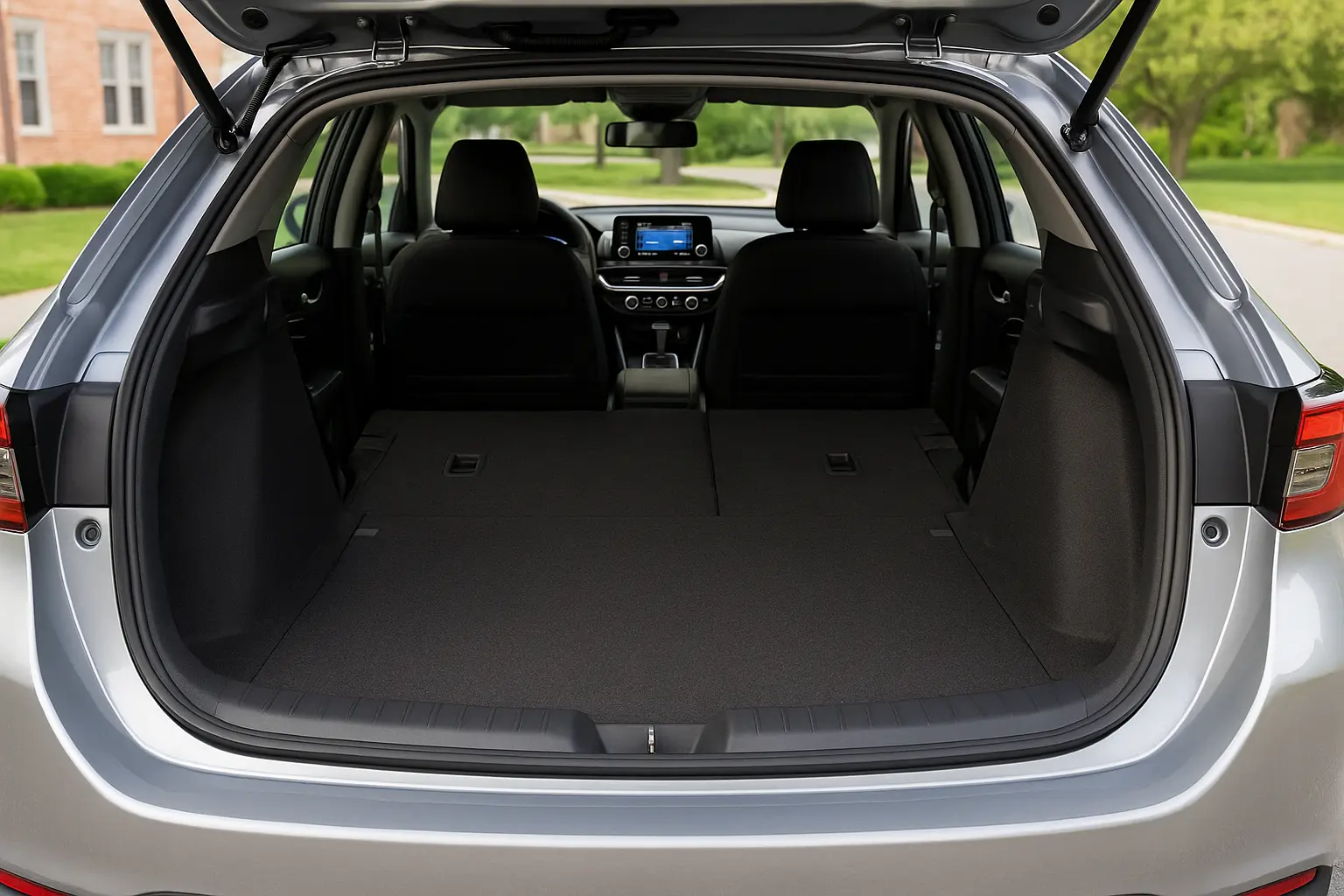
Why Spacious Hatchbacks Matter in 2025
While SUVs dominate headlines, hatchbacks remain a practical and affordable choice for many Australians. But space is key, especially for:
Young families needing room for prams or groceries
City dwellers wanting boot space without bulky SUVs
Seniors seeking easy entry and exit with upright seating
Road-trippers needing versatile cargo options
In 2025, automakers are pushing the limits of space efficiency with clever packaging, flatter floors (especially in EVs), and flexible seating configurations.
What Makes a Hatchback Spacious?
To determine spaciousness, we considered the following:
Rear Legroom & Headroom: Crucial for adult passengers.
Boot Capacity (litres): Measured with seats up and down.
Cabin Width: Shoulder and hip room can make or break comfort.
Seat Flexibility: Split-fold, slide-and-tilt rear seats.
Flat Floors (EVs especially): Improves walk-through feel.
Storage Compartments: Cup holders, door bins, underfloor storage.
Let’s explore the top picks that deliver maximum space with compact footprints.
Top 10 Spacious Hatchbacks in Australia for 2025
1. Honda Civic Hatchback
Boot Capacity: 449L
Rear Legroom: 950mm+
Why It’s Spacious:
The 11th-gen Civic is no longer “compact.” With sleek proportions and a long wheelbase, rear passengers enjoy excellent legroom, and the cargo area is class-leading for a non-hybrid. Rear seats fold flat, creating a cargo-friendly setup.Bonus: Wide-opening doors and a low boot lip.
2. Toyota Corolla Hatch (2025 Update)
Boot Capacity: 333L (with spare), 374L (without)
Rear Legroom: Moderate, but clever layout
Why It’s Spacious:
The Corolla Hatch might seem snug on paper, but Toyota’s packaging is smart. Rear seatbacks recline slightly, headroom is sufficient for tall passengers, and the cargo bay shape is user-friendly despite the number.Hybrid versions now offer underfloor storage for cables or valuables.
3. Kia Cerato Hatch
Boot Capacity: 428L
Rear Room: Generous leg and headroom
Why It’s Spacious:
One of the largest hatchbacks in the segment. The Cerato’s tall roofline and deep cargo floor make it ideal for families on a budget. Rear passengers enjoy lounge-like comfort, while the boot handles large suitcases with ease.
4. Hyundai i30 Hatch
Boot Capacity: 395L
Rear Space: Adult-friendly rear seats
Why It’s Spacious:
The i30 continues to offer excellent value. It strikes a near-perfect balance between ride comfort, cabin refinement, and storage. Split-fold rear seats and a well-sculpted boot area enhance versatility.Special mention: The i30 Sedan offers even more space if you can stretch your budget.
5. Volkswagen Golf (Mk8)
Boot Capacity: 381L
Rear Space: Surprisingly adult-friendly
Why It’s Spacious:
The Golf’s strength lies in refinement and practicality. Doors open wide, floor is nearly flat, and the boxy boot shape makes loading bulky items easier. Storage bins and door pockets are well-sized, too.
6. Mazda3 Hatch
Boot Capacity: 295L
Cabin Quality: Top-tier in materials and layout
Why It’s Spacious:
While the boot is on the smaller side, the overall cabin layout is incredibly ergonomic. There's ample shoulder room, especially up front. Mazda compensates for boot space with clever underfloor storage and flat-folding rear seats.
7. Skoda Scala
Boot Capacity: 467L
Rear Space: Excellent legroom
Why It’s Spacious:
The Scala is the dark horse of roomy hatchbacks. It offers almost small-wagon practicality with class-leading boot volume, generous rear space, and Skoda’s famed “Simply Clever” touches—like hooks, nets, and umbrella holders.
8. Peugeot 308 Hatch
Boot Capacity: 412L
Interior Flexibility: Classy and clever
Why It’s Spacious:
The 308 brings French flair with smart space. Despite its compact stance, it fits four adults comfortably and boasts a deep, square boot. Rear seats fold fully flat, making it excellent for weekend adventures.
9. Renault Megane E-Tech (Electric)
Boot Capacity: 440L
EV Benefit: Flat floors, no transmission tunnel
Why It’s Spacious:
With its electric architecture, the Megane E-Tech removes many traditional space-eaters. Passengers enjoy open-feeling space, and the boot is deeper than expected thanks to smart motor placement.
10. Cupra Born (Electric)
Boot Capacity: 385L
Interior Vibe: Premium and minimalist
Why It’s Spacious:
The Cupra Born’s MEB EV platform maximises interior real estate. Flat floors, lots of foot space, and good headroom make it a solid pick for space-conscious buyers. Also, the upright tailgate improves usable boot space.
Bonus Mentions – Worth Considering
- MG4 EV:
Competitive boot size (363L), roomy second row, excellent floor design.
- Suzuki Swift (2025 Gen):
Though subcompact, its tall shape and clever cabin make it feel airy inside.
Space vs Style – The Hatchback Balancing Act
Spaciousness often comes at the cost of sleek styling or compact footprint. But in 2025, many manufacturers have managed to blend the two. Let’s compare some numbers.
| Model | Boot (L) | Rear Legroom | EV/ICE | Highlights |
|---|---|---|---|---|
| Honda Civic | 449 | 950mm+ | ICE | Biggest boot in its class |
| Skoda Scala | 467 | Very High | ICE | Wagon-like space |
| Kia Cerato | 428 | Generous | ICE | Deep boot, wide cabin |
| Renault Megane E-Tech | 440 | High | EV | Flat floors, deep boot |
| Mazda3 | 295 | Moderate | ICE | Premium cabin, compact design |
Hatchback vs Small SUV – Space Showdown
You might be tempted to choose a small SUV instead, thinking it’s the “roomy” option. But many hatchbacks outperform crossovers in actual usable space.
Hatchback Advantages:
Lower loading floor = easier boot access
Better headroom (in tall hatchbacks like Scala or Civic)
Superior handling and efficiency
Less compromise in cargo due to hybrid/EV battery placement
Example:
Mazda CX-30 Boot: 317L
Mazda3 Hatch Boot: 295L
Only 22L difference—but Mazda3 is lighter and sportier to drive.
Practical Features to Look for in a Spacious Hatchback
Beyond raw numbers, these features make a big difference:
60:40 or 40:20:40 split-fold rear seats
Rear seat recline (rare but useful)
Adjustable boot floor height
Deep door pockets and large glove boxes
Rear air vents and USB-C outlets for comfort
Panoramic sunroof without compromising headroom
Who Should Buy a Spacious Hatch?
Urban families needing room for prams or shopping
Seniors who prefer upright seating without SUV bulk
Young professionals who value style + practicality
EV early adopters who want space without SUV size
Budget-conscious buyers who want more for less
Final Thoughts – Don’t Underestimate the Humble Hatch
The 2025 hatchback market proves that practicality doesn't require compromise. Whether you're hauling family gear, groceries, or planning a road trip, today’s hatches are more flexible, comfortable, and cargo-ready than ever before.
With clever layouts, folding seat tricks, and boot capacities rivalling some SUVs, the modern hatchback might just be the smartest car choice for Aussie drivers.
Leave a comment
Your email address will not be published. Required fields are marked *


